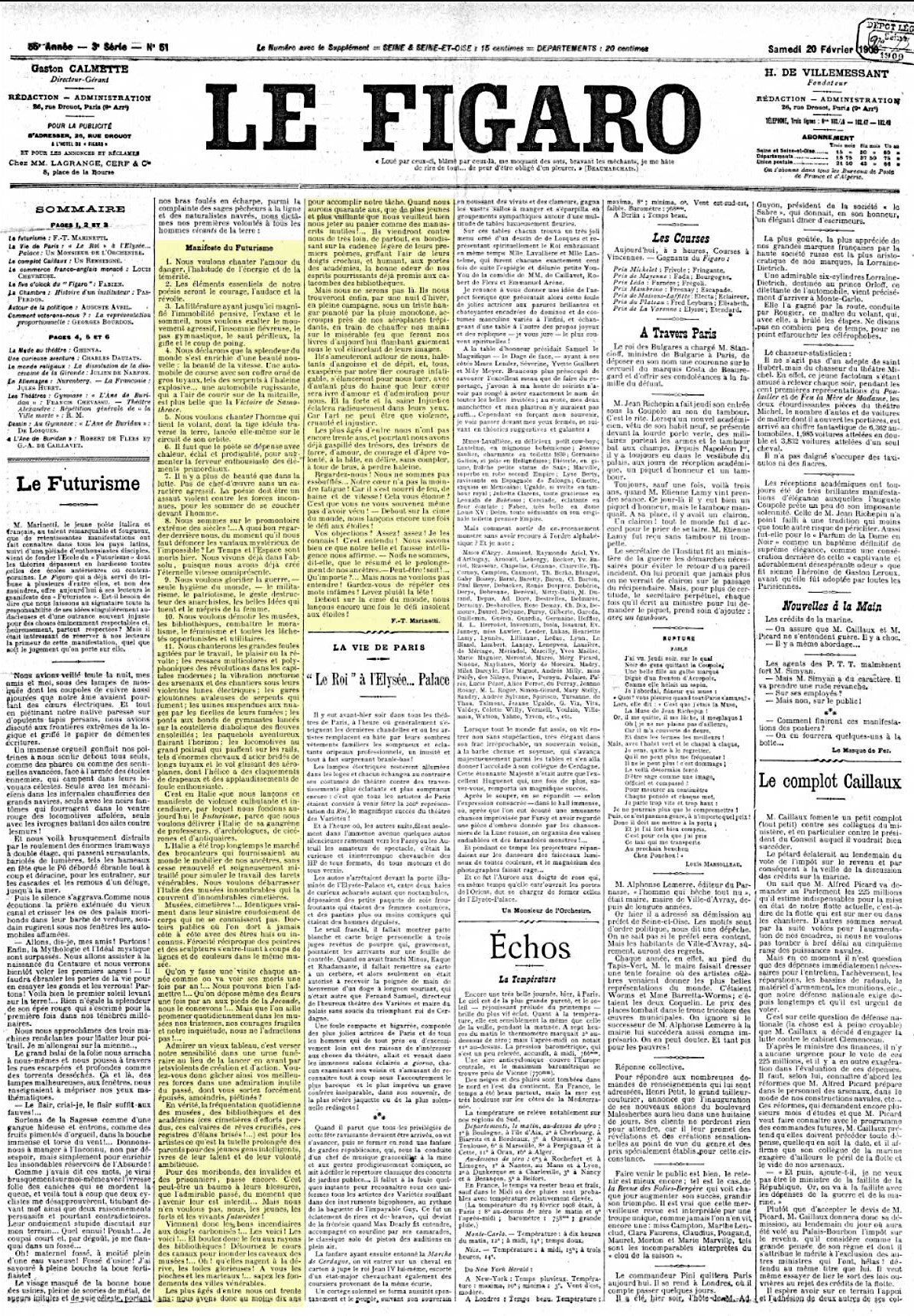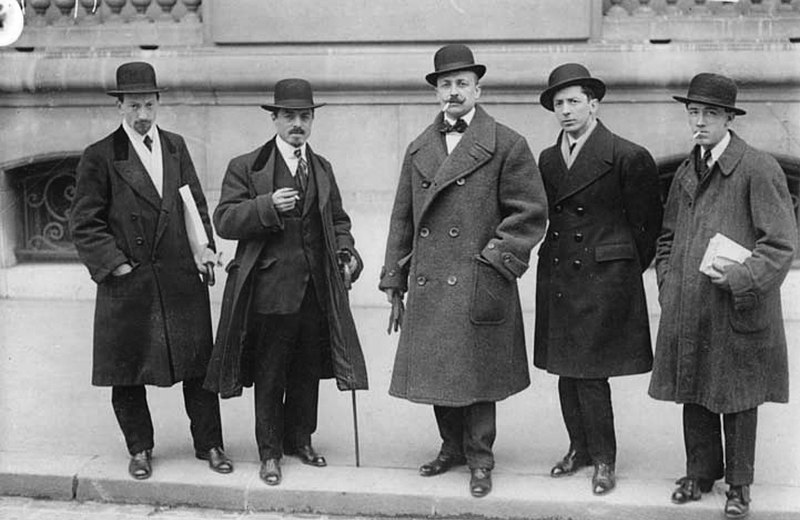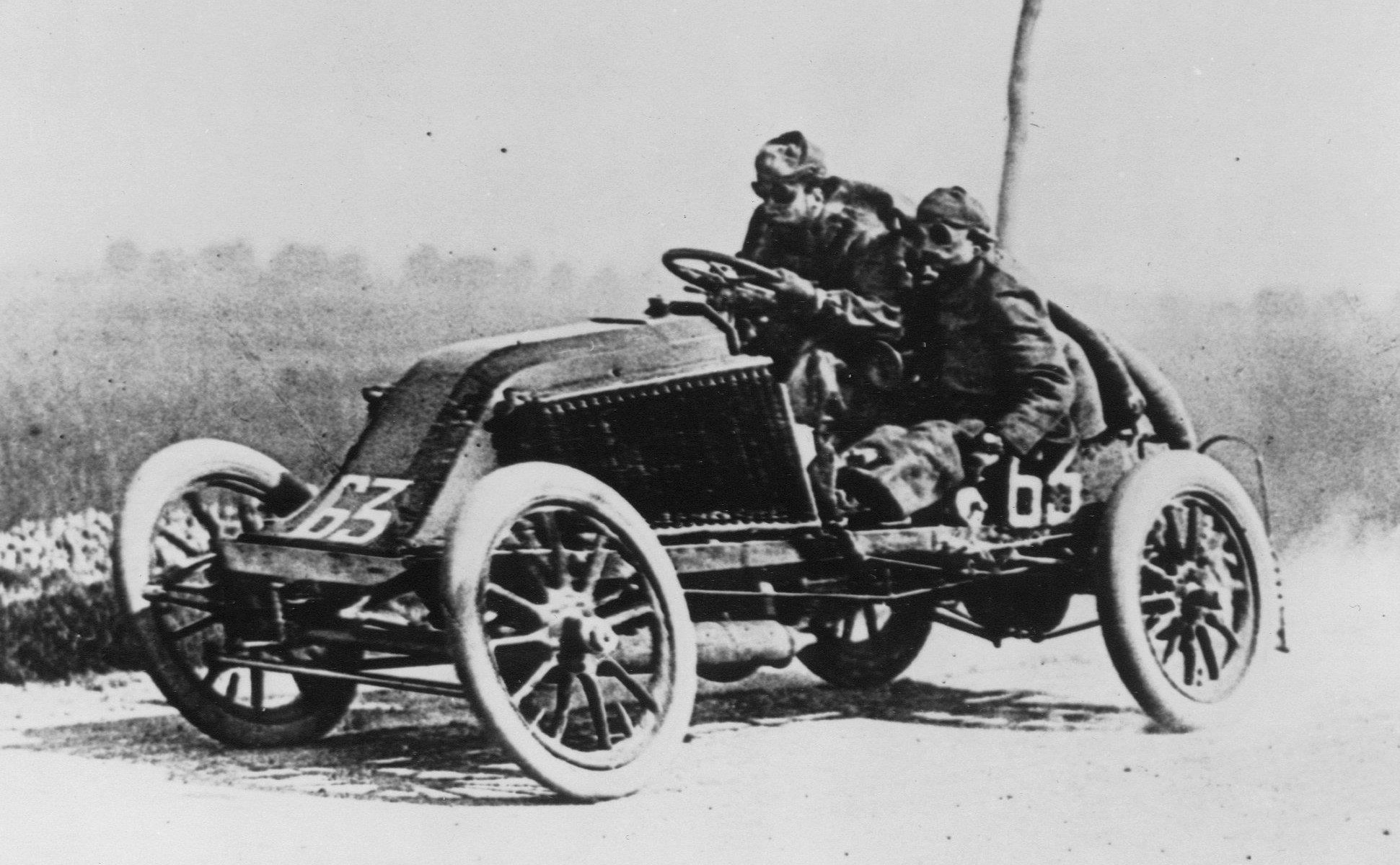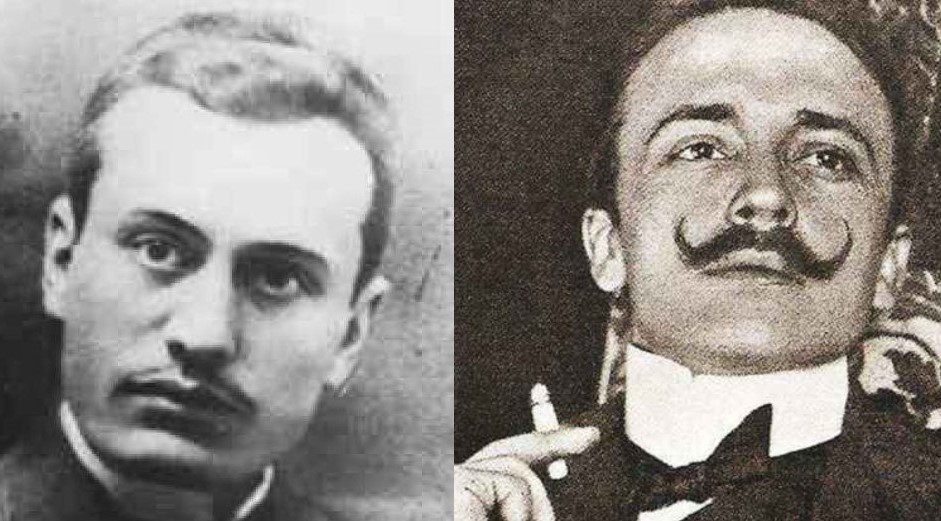Read below the full text of the Futurist Manifest as it was published on the front page of Le Figaro. Click here for the original French text. For analysis of the text and other Futurist writings, view the links below the text. Note, the blue-highlighted quotes are the ones I consider the most important.
Futurism
M. Marinetti, the young Italian and French poet, whose remarkable and fiery talent has been made known throughout the Latin countries by its notorious demonstrations and who has a galaxy of enthusiastic disciples, has just founded the school of “Futurism,” whose theories surpass in daring all previous and contemporary schools. The Figaro, which has been already provided a rostrum for a number of these schools, and by no means minor ones, today offers its readers the Manifesto of the “Futurists.” Is it necessary to say that we assign to the author himself full responsibility for his singularly audacious ideas and his frequently unwarranted extravagance in the face of things that are eminently respectable and, happily, everywhere respected? But we thought it interesting to reserve for our readers the first publication of this manifesto, whatever their judgement of it will be. 1Marjorie Perloff: The Futurist Moment: Avant-Garde, Avant Guerre, and the Language of Rupture (Chicago: University of Chicago Press, 2003), 82.
**************
My friends and I had stayed up all night, sitting beneath the lamps of a mosque, whose star-studded, filigreed brass domes resembled our souls, all aglow with the concentrated brilliance of an electric heart. For many hours, we’d been trailing our age-old indolence back and forth over richly adorned, oriental carpets, debating at the uttermost boundaries of logic and filling up masses of paper with our frenetic writings. 2F. T. Marinetti: Critical Writings, trans. Doug Thompson, ed. Günter Berghaus (New York: Farrar, Straus and Giroux, 2006), 11-16.
Immense pride filled our hearts, for we felt that at that hour we alone were vigilant and unbending, like magnificent beacons or guards in forward positions, facing an army of hostile stars,which watched us closely from their celestial encampments. Alone we were, with the stokers working feverishly at the infernal fires of great liners; alone with the black specters that rake through the red-hot bellies of locomotives, hurtling along at breakneck speed; alone with the floundering drunks, with the uncertain beating of our wings, along with city walls.
Suddenly we were startled by the terrifying clatter of huge, double-decker trams jolting by, all ablaze with different-colored lights, as if they were villages in festive celebration, which the River Po, in full spate, suddenly shakes and uproots to sweep them away down to the sea, over the falls and through the whirlpools of a mighty flood.
Then the silence became more somber. Yet even while we were listening to the tedious, mumbled prayers of an ancient canal and the creaking bones of dilapidated palaces on their tiresome stretches of soggy lawn, we caught the sudden roar of ravening motorcars, right there beneath our windows.
“Come on! Let’s go!” I said. “Come on, my lads, let’s get out of here!” At long last, all the myths and mystical ideals are behind us. We’re about to witness the birth of a Centaur and soon we shall witness the flight of the very first Angels!… We shall have to shake the gates of life itself to test their locks and hinges!… Let’s be off! See there, the Earth’s very first dawn! Nothing can equal the splendor of the sun’s red sword slicing through our millennial darkness, for the very first time!”
We approached the three panting beasts to stroke their burning breasts, full of loving admiration. I stretched myself out on my car like a corpse on its bier, but immediately I was revived as the steering wheel, like a guillotine blade, menaced my belly.
A furious gust of madness tore us out of ourselves and hurled us along roads as deep and plunging as the beds of torrents. Every now and then a feeble light, flickering behind some windowpane, made us mistrust the calculations of our all-too-fallible eyes. I cried out: “The scent, nothing but the scent! That’s all an animal needs!”
And we, like young lions, chased after Death, whose black pelt was dotted with pale crosses, as he sped away across the vast, violet-tinted sky, vital and throbbing.
And yet we had no idealized Lover whose sublime being rose up into the skies; no cruel Queen to whom we might offer up our corpses, contorted like Byzantine rings! Nothing at all worth dying for, other than the desire to divest ourselves finally of the courage that weighed us down!
But we sped on, squashing beneath our scorching tires the snarling guard dogs at the doorsteps of their houses, like crumpled collars under a hot iron. Death, tamed by this time, went past me at each bend, only to offer me his willing paw; and sometimes he would like down, his teeth grinding, eyeing me with his soft, gentle look from every puddle in the road.
“Let’s leave wisdom behind as if it were some hideous shell, and cast ourselves, like fruit, flushed with pride, into the immense, twisting jaws of the wind!… Let’s become food for the Unknown, not out of desperation, but simply to fill up the deep wells of the Absurd to the very brim!”
I had hardly got these words out of my mouth when I swung the car right around sharply, with all the crazy irrationality of a dog trying to bite its own tail. Then suddenly a pair of cyclists came toward me, gesticulating that I was on the wrong side, dithering about in front of me like two different lines of thought, both persuasive but for all that, quite contradictory. Their stupid uncertainty was in my way… How ridiculous! What a nuisance!… I brake hard and to my disgust the wheels left the ground and I flew into a ditch…
O mother of a ditch, brimful with muddy water! Fine repair shop of a ditch! How I relished your strength-giving sludge that reminded me so much of the saintly black breast of my Sudanese nurse… When I got myself up—from beneath my overturned car, I had a wonderful sense of my heart being pierced by the red-hot sword of joy!
A crowd of fishermen, with their lines, and some gouty old naturalists were already milling around this wondrous spectacle. Patiently, meticulously, they set up tall trestles and laid out huge iron-mesh nets to fish out my car, as if it were a great shark that had been washed up and stranded. Slowly the car’s frame emerged, leaving its heavy, sober bodywork at the bottom of the ditch as well as its soft, comfortable upholstery, as though they were merely scales.
They thought it was dead, that gorgeous shark of mine, but a caress was all it needed to revive it, and there it was, back from the dead, darting along with its powerful fins!
So, with my face covered in repair-shop grime—a fine mixture of metallic flakes, profuse sweat, and pale-blue soot—with my arms all bruised and bandaged, yet quite undaunted, I dictated our foremost desires to all men on Earth who are truly alive:
THE FUTURIST MANIFESTO
1. We want to sing about the love of danger, about the use of energy and recklessness as common, daily practice.2. Courage, boldness, and rebellion will be essential elements in our poetry.
3. Up to now, literature has extolled a contemplative stillness, rapture, and reverie. We intend to glorify aggressive action, a restive wakefulness, life at the double, the slap and the punching fist.
4. We believe that this wonderful world has been further enriched by a new beauty, the beauty of speed. A racing car, its bonnet decked out with exhaust pipes like serpents with galvanic breath…a roaring motorcar, which seems to race on like machine-gun fire, is more beautiful than the Winged Victory of Samothrace.
5. We wish to sing the praises of the man behind the steering wheel, whose sleek shaft traverses the Earth, which itself is hurtling at breakneck speed slong the racetrack of its orbit.
6. The poet will have to do all in his power, passionately, flamboyantly, and with generosity of spirit, to increase the delirious fervor of the primordial elements.
7. There is no longer any beauty except the struggle. Any work of art that lacks a sense of aggression can never be a masterpiece. Poetry must be thought of as a violent assault upon the forces of the unknown with the intention of making them prostrate themselves at the feet of mankind.
8. We stand upon the furthest promontory of the ages!… Why should we be looking back over our shoulders, if what we desire is to smash down the mysterious doors of the Impossible? Time and Space died yesterday. We are aleady living in the realms of the Absolute, for we have already created infinite, ominpresent speed.
9. We wish to glorify war—the sole cleanser of the world—militarism, patriotism, the destructive act of the libertarian, beautiful ideas worth dying for, and scorn for women.
10. We wish to destroy museums, libraries, academies of any sort, and fight against moralism, feminism, and every kind of materialistic, self-serving cowardice.
11. We shall sing of the great multitudes who are roused up by work, by pleasure, or by rebellion; of the many-hued, many-voiced tides of revolution in our modern capitals; of the pulsating, nightly ardor of arsenals and shipyards, ablaze with their violent electric moons; of railway stations, voraciously devouring smoke-belching serpents; of workshops hanging from the clouds by their twisted threads of smoke; of bridges which, like giant gynmants, bestride the rivers, flashing in the sunlight like gleaming knives; of intrepid steamships that sniff out the horizon; of broad-breasted locomotives, champing on their wheels like enormous steel horses, bridles with pipes; and of the lissome flight of the airplane, whose propeller flutters like a flag in the wind, seeming to applaud, like a crowd excited.
It is from Italy that we hurl at the whole world this utterly violent, inflammatory manifesto of ours, with which today we are foundiung “Futurism,” because we wish to free our country from the stinking canker of its professors, archaeologists, tour guides, and antiquarians.
For far too long has Italy been a marketplace for junk dealers. We want to free our country from the endless number of museums that everywhere cover her like countless graveyards. Museums, graveyards! They’re the same thing, really, because of their grim profusion of corpses that no one remembers. Museums. They’re just public flophouses, where things sleep on forever, alongside other loathsome or nameless things! Museums: ridiculous abattoirs for painters and sculptors, who are furiously stabbing one another to death with colors and lines, all along the walls where they vie for space.
Sure, people may go there on pilgrimage about once a year, just as they do to the cemetery on All Souls Day—I’ll grant you that! And yes, once a year a wreath of flowers is laid at the feet of the Gioconda —I’ll grant you that too! But what I won’t allow is that all our miseries, our fragile courage, or our sickly anxieties get marched daily around these museums. Why should we want to poison ourselves? Why should we want to rot? What on earth is there to be discovered in an old painting other than the labored contortions of the artist, trying to break down the insupertic dream?… Admiring an old painting is just like pouring our purest feelings into a funerary urn, instead of projecting them far and wide, in violent outbursts of creation and of action.
Do you really want to waste all your best energies in this unending, futile veneration for the past, from which you emerge fatally exhausted, diminished, trampled down?
Make no mistake, I’m convinced that for an artist to go every day to museums and libraries and academies (the cemeteries of wasted effort, calvaries of crucified dreams, records of impulses cut short!…) is every bit as harmful as the prolonged overprotectiveness of parents for certain young people who get carried away by their talent and ambition. For those who are dying anyway, for the invalids, for the prisoners—who cares? The admirable past may be a balm to their worries, since for them the future is a closed book… but we, the powerful young Futurists, don’t want to have anything to do with it, the past!
So let them come, the happy-go-lucky fire raisers with their blackened fingers! Here they come! Here they are!… Come on then! Set fire to the library shelves!… Divert the canals so they can flood the museums!… Oh, what a pleasure it is to see those revered old canvases, washed out and tattered, drifting away in the water!… Grab your picks and your axes and your hammers and then demolish, pitilessly demolish, all venerated cities!
The oldest among us are thirty; so we have at least ten years in which to complete our task. When we reach forty, other, younger, and more courageous men will very likely toss us into the trash can, like useless manuscripts. And that’s what we want!
Our successors will rise up against us, from far away, from every part of the world, dancing on the winged cadenzas of their first songs, flexing their hooked, predatory claws, sniffing like dogs at the doors of our academies, at the delicious scent of our decaying minds, already destined for the catacombs of libraries.
But we won’t be there… Eventually, they will find us, on a winter’s night, in a humble shed, far away in the country, with an incessant rain drumming upon it, and they’ll see us huddling anxiously together beside our airplanes, warming our hands around the flickering flames of our present-day books, which burn away beneath our images as they are taking flight.
They will rant and rave around us, gasping in outrage and fury, and then—frustrated by our proud, unwavering boldness—they will hurl themselves upon us to kill us, driven by a hatred made all the more implacable because their hearts overflow with love and admiration for us.
Strong, healthy Injustice will flash dazzlingly in their eyes. Art, indeed, can be nothing but violence, cruelty, and injustice.
The oldest among us are only thirty, And yet we have squandered fortunes, a thousand fortunes of strength, love, daring, cleverness, and of naked willpower. We have tossed them aside impatiently, in anger, without thinking of the cost, without a moment’s hesitation, without ever resting, gasping for breath… Just look at us! We’re not exhausted yet! Our hearts feel no weariness, for they feed on fire, on hatred and on speed!…Does that surprise you?… That’s logical enough, I suppose, as you don’t even remember having lived! Standing tall on the roof of the world, yet again we fling our challenge at the stars!
Do you have any objections?… All right! Sure, we know what they are… We have understood!… Our sharp, duplicitous intelligence tells us that we are the sum total and the extension of our forebears. — Well, maybe!… Be that as it may!… But what does it matter? We want nothing to do with it!… Woe betide anybody whom we catch repeating these infamous words of ours.
Look around you!
Standing tall on the roof of the world, yet once again, we hurl our defiance at the stars!…
Learn more about Futurism:
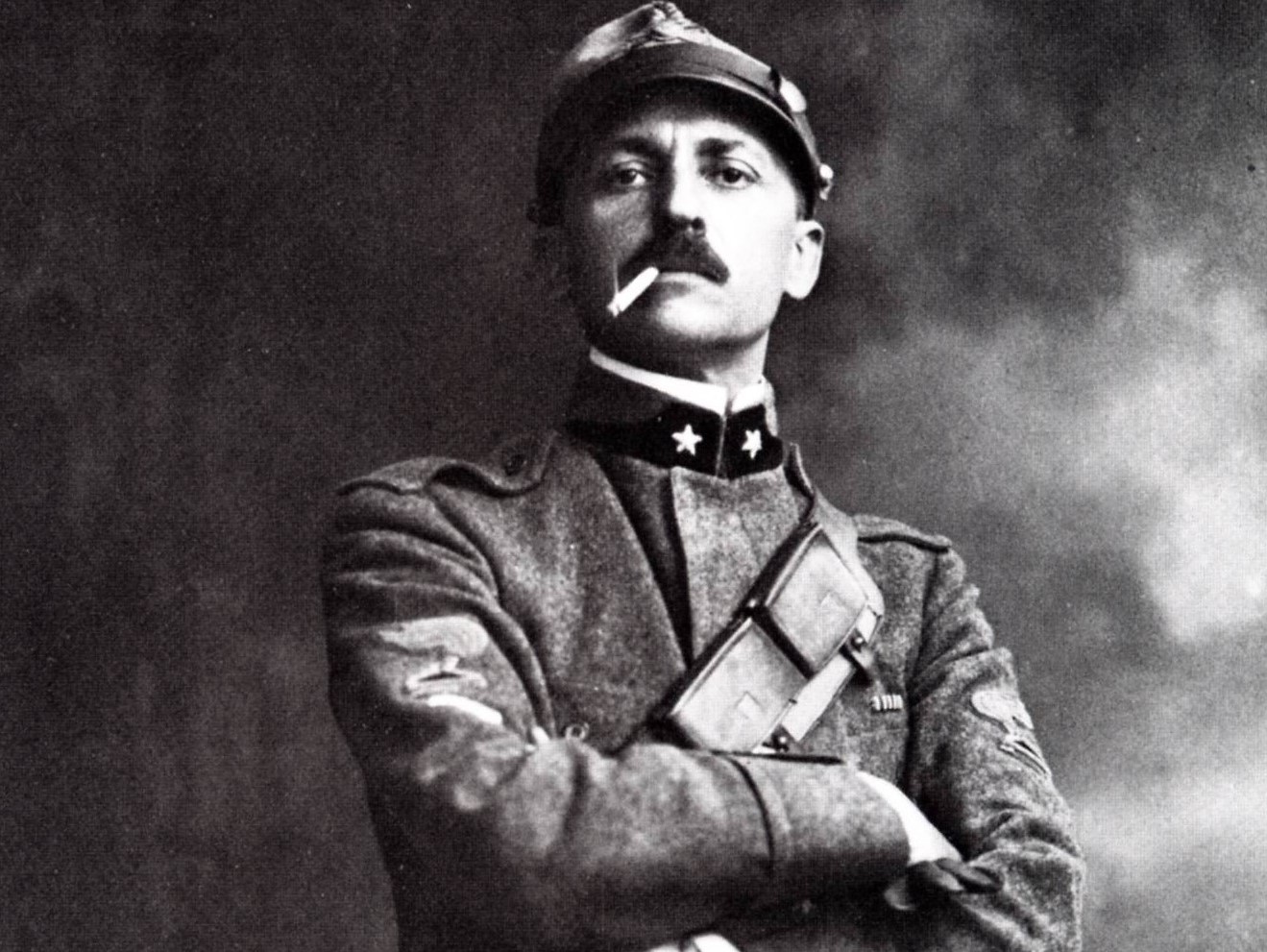
Gloriously masculine and mechanical: The Futurist Manifesto
The three themes of their manifesto show how the Futurists envisioned the modern world a century ago
ARTICLE: THE FUTURIST MANIFESTO
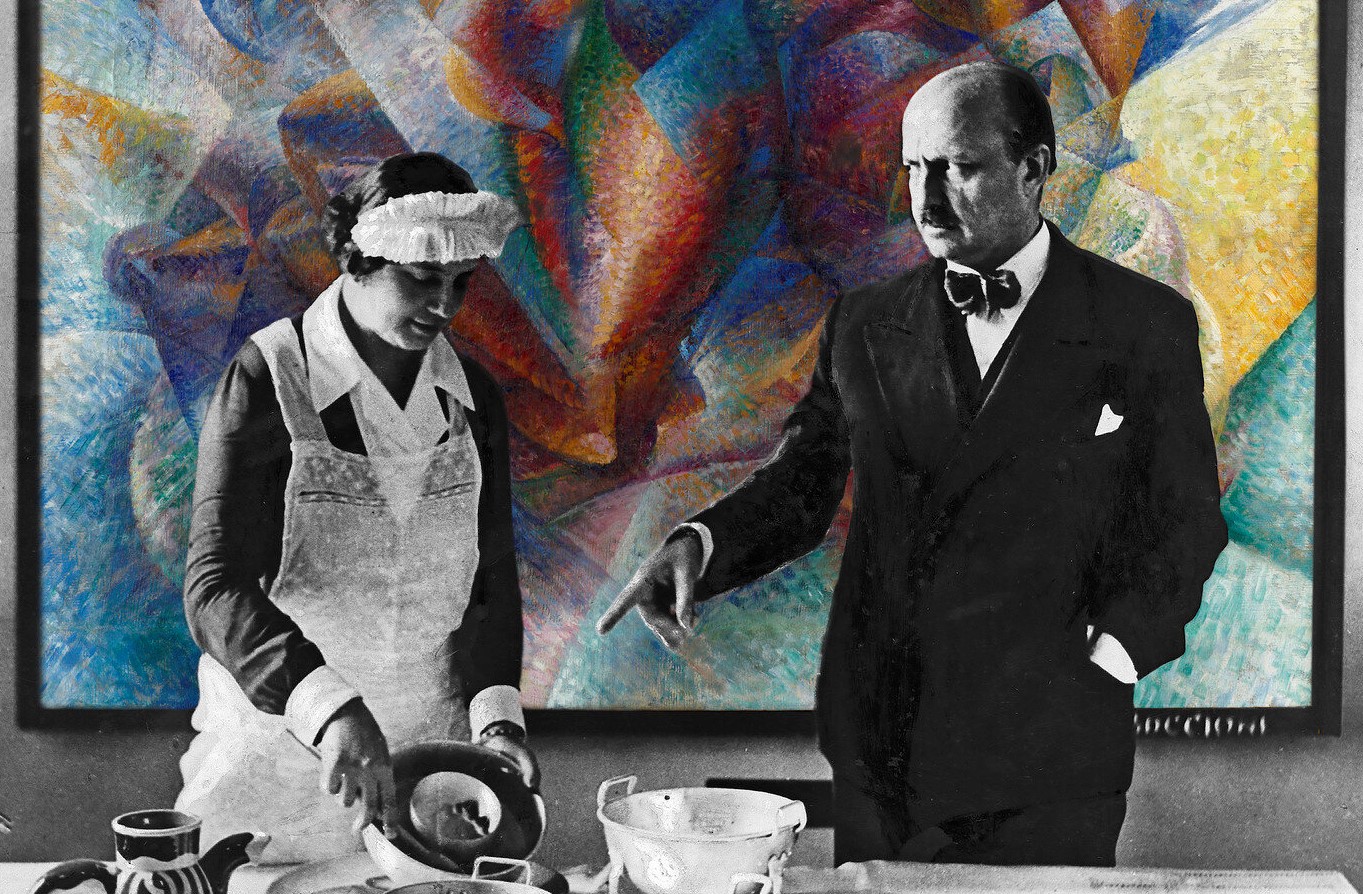
The misogynist who supported feminist causes—mostly inadvertently
The Italian Futurist poet, F. T. Marinetti, was a misogynist and a proto-feminist all at once
ARTICLE: THE FUTURIST MANIFESTO
‘Destroy museums!’–Why an Italian waged war against the past
Those who embraced state-sponsored iconoclasm as a fast track to modernization
ARTICLE: THE FUTURIST MANIFESTO
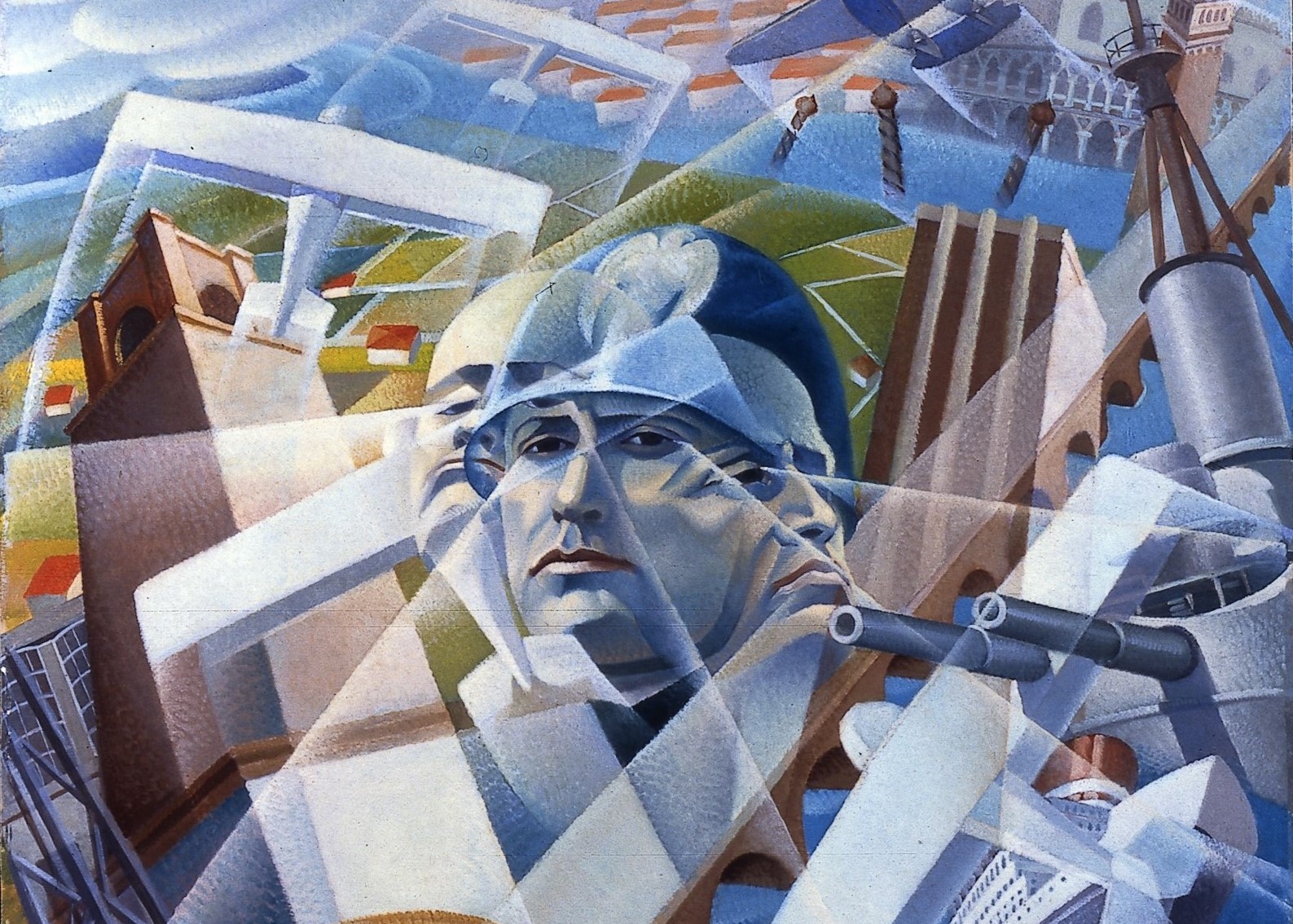
Was Futurism proto-fascism?
The most important elements of Fascism could be traced to Italian Futurist writings years earlier
ARTICLE: THE FUTURIST MANIFESTO
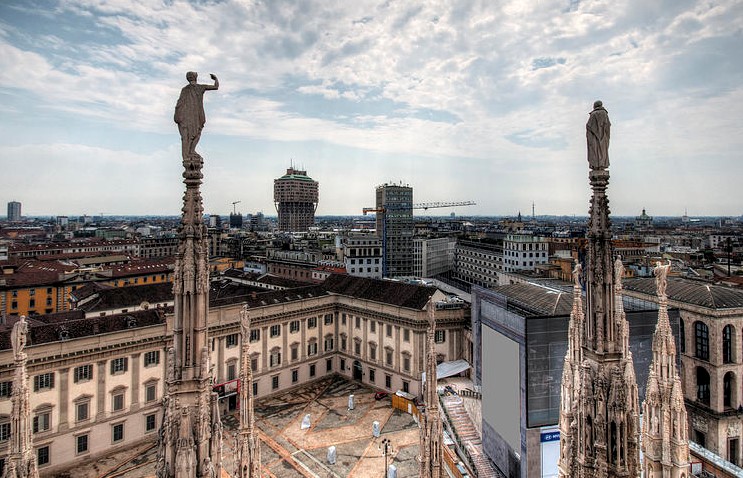
Three possible reasons why Italy lagged behind Europe for centuries
Why Italy’s modernization has been, and continues to be, problematic?
ARTICLE: THE FUTURIST MANIFESTO

Italian Futurists: The first to love and worship the machine
The machine demonized, deified, humanized and eventually merged with us
ARTICLE: THE FUTURIST MANIFESTO
Endnotes

